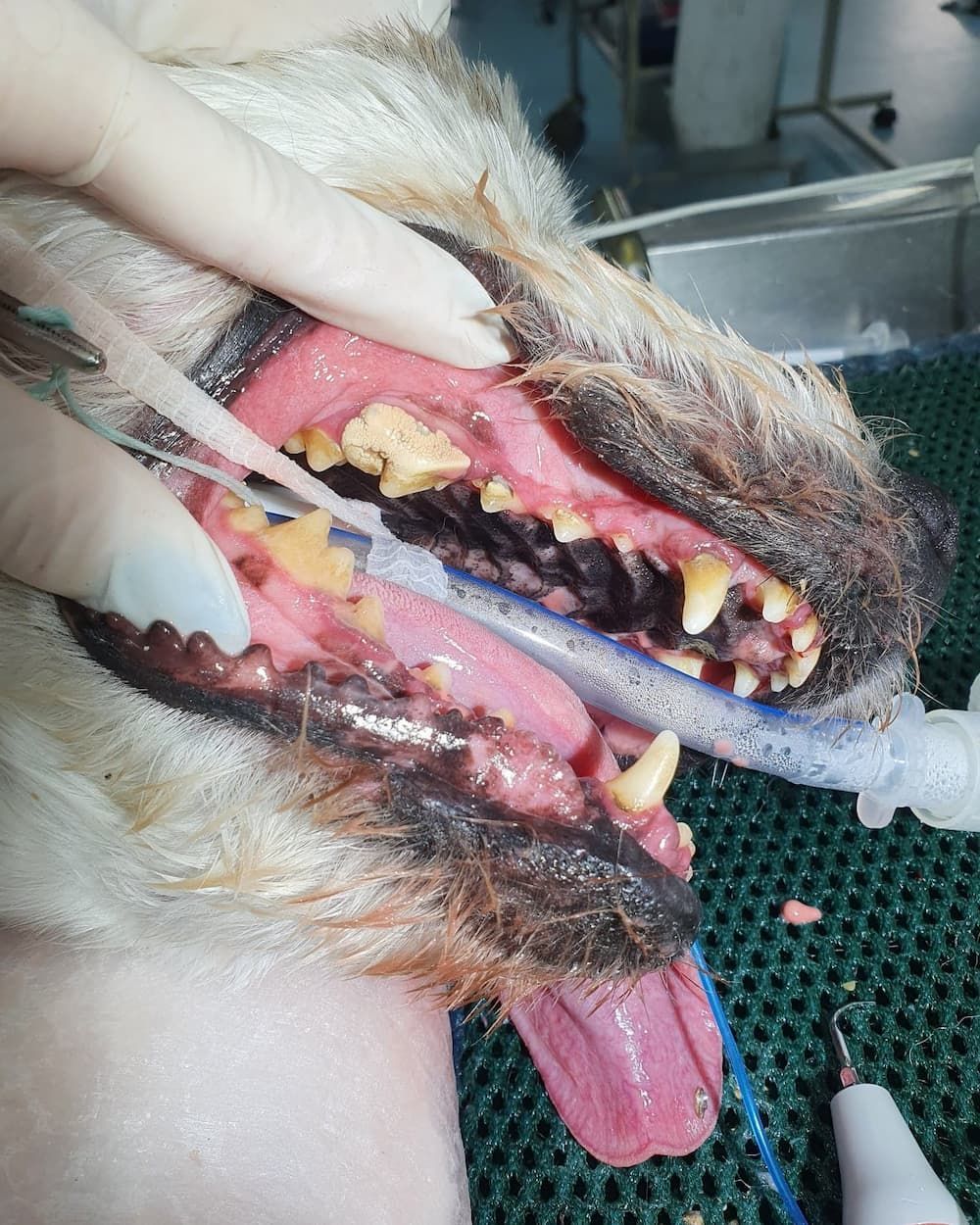News

August 2, 2023
What Is Degenerative Joint Disease? Degenerative joint disease (arthritis) is inflammation of the joints. When arthritis occurs it is a result of the cartilage lining of the joint wearing down, resulting in swelling, inflammation and pain. The lining can wear down because of disease, poor structure or development, confirmation or excessive weight gain. What are the symptoms of arthritis pain? · Trouble walking or running · Moving slower than normal · Difficulty going up or down stairs or for cats unwillingness to jump · Reluctance to play or exercise · Repeatedly licking joints · Quietness or grumpiness Many of us believe our pets can understand us but unfortunately, we can’t ask them how they are feeling. It is up to us to spot these type of changes which can sometimes be subtle. What do I do next? If you recognise one or more of these symptoms or behaviours, take an online assessment (https://www.zoetispets.com/au-en/dog/arthritis/) and bring your pet into our clinic for a full clinical assessment and assistance with a management plan. If your dog has already been diagnosed with arthritis then it’s a good idea to continue with regular monitoring their treatment. Pain management is advancing all the time, get in touch with us to find out our latest recommendations on the best course of action available.

May 9, 2023
H͎E͎A͎R͎T͎W͎O͎R͎M͎ We have diagnosed 5 cases of heartworm just last week! Heartworm is endemic in North QLD and ALL dogs (and cats) not on regular, appropriate heartworm protection are at risk of infection. It is so important to understand that if not treated heartworm is fatal. But also, heartworm treatment is a long complex process with many associated risks, and is costly. Prevention is the best course of action for your beloved pet. Some of the patients we diagnosed this week were on monthly prevention products. Tragically one or more of their monthly doses were given late or missed. That is all it takes - ONE late dosage and your pet could be infected with heartworm! For this reason, MCVH strongly recommends considering the annual Proheart injection. This offers the safest heartworm prevention on the market. If you are unsure if your much-loved pet is up to date with their heartworm prevention, or you think it is possible one of their monthly treatments was given late - contact the clinic today to book a heartworm test and discuss the best prevention for you.

May 9, 2023
𝐵𝐸𝐹𝒪𝑅𝐸 𝒜𝒩𝒟 𝒜𝐹𝒯𝐸𝑅 Scamp has beautiful pearly whites again! Have you looked at your dogs teeth lately? Periodontal disease is one of the most common diseases seen in adult dogs and cats. Taking care of your dogs teeth can add 2- 4 years to their life. 𝗪𝗵𝗮𝘁 𝗶𝘀 𝗣𝗲𝗿𝗶𝗼𝗱𝗼𝗻𝘁𝗮𝗹 𝗗𝗶𝘀𝗲𝗮𝘀𝗲? When bacteria and food particles collect along the gum line of your pooch's mouth and are not brushed away during a regular tooth brushing, they can develop into plaque and harden into calculus we know as tartar (As seen in the picture below). This causes irritation and inflammation of the gum line and surrounding areas (the condition is also referred to as gingivitis). This represents the first stages of gum disease. Diet and poor nutrition can factor into whether your dog will develop periodontal disease, as do environmental contributors such as grooming habits, dirty toys, the alignment of teeth (pups with crowded teeth are more susceptible to gum disease), and oral hygiene. Fortunately, we pet parents can prevent our fur babies from getting periodontal disease, and the condition can be treated and reversed - if detected early. When it comes to your dog’s oral health, don’t neglect it or procrastinate. Similar to us, they require regular dental appointments to keep up with oral hygiene and identify any trouble spots. Your pup should go to the vet’s at least once each year to have their oral health evaluated. Happy smiling Scamp!

May 9, 2023
Milton our BOAS hero If you own a “squishy face” dog like a pug, bulldog or frenchie, then you are likely familiar with the term Brachycephalic Obstructive Airway Syndrome (BOAS) which is caused by their skull structure (short nose). BOAS is a lifelong disorder and can progressively worsen over time affecting the dogs ability to exercise, play, sleep, breathe and engage in normal activities comfortably. Brachycephalic Obstructive Airway Syndrome (BOAS) refers to a group of upper airway abnormalities that include: Stenotic nares - Narrow or small nostrils, that restrict airflow. Elongated soft palate - The soft roof of the mouth is too long and thick. This leads to partial obstruction of the windpipe. Everted laryngeal saccules - Small pouches that are sucked into the airways, causing partial obstruction of airflow. Enlarged tonsils Recently 2 year old French Bulldog Milton visited from Weipa for assessment and surgery for his BOAS. You can see in the picture Milton's enlarged and inflamed tonsils. During BOAS surgery we also assess for hypoplastic trachea, hemivertebrae and screw tails, commonly found conditions in French Bulldogs. If you have questions about BOAS surgery book a consult with Marlin Coast Vet Hospital.

May 9, 2023
What is JPS - Juvenile Pubic Symphysiodesis? Meet Baloo, the German Shepherd. Baloo was 4 months of age when he had a Juvenile Pubic Symphysiodesis (JPS) surgery performed at Marlin Coast. Baloo required this surgery to improve hip development and reduce osteoarthritis development after being diagnosed with hip dysplasia. Hip dysplasia means that the puppy’s hips have abnormal development, resulting in a shallow socket and loose joints. These joints are prone to subluxation (partial dislocation) leading to an early onset of arthritis causing pain. JPS surgery is a minimally invasive, prophylactic surgical procedure performed when a puppy is between 14-20 weeks old. During this procedure we close the growth plate in the floor of the pelvis, altering movement during the puppy’s growth. As the pelvis develops, the growth plate closure leads to the hip socket rotating over the femoral head (ball of the hip joint). This additional rotation increases the coverage of the hip joint and provides more stability. These puppies are diagnosed via screening xrays and/or by identifying hip pain at their 10-12 week or 16 week vaccination. Xrays allow us to determine the degree of hip subluxation and determine the risk of the puppy developing hip osteoarthritis. Following JPS, 80% of dogs will have significant improvement and lessen the chance of needing advanced surgery or pain killers as an adult. The day after Baloo’s procedure he was back to his normal playful self. Puppies recover well from this procedure with minimal to no pain post-operatively.

May 9, 2023
Worming is one of the first health care issues pet owners need to address as pups and kittens are the most susceptible. As their name suggests, intestinal worms are parasites that live inside your pet’s intestines. These worms range in size from small to surprisingly large (up to 18cm in length). Regardless of their size however, they all have negative, and potentially deadly effects. Common intestinal worms in Australian pets are: Roundworm Tapeworm Whipworm Hookworm If your pet has a large number of worms it may find it difficult to maintain body condition and it can lose weight. In some cases it can cause vomiting, diarrhoea and even anaemia (a low red blood cell level). Occasionally, heavy intestinal worm burdens can cause death. It is important to maintain a routine worming treatment for your pets, to reduce the incidence of infection and to reduce environmental contamination. There are many worming treatments available for the various worm infections that occur in our pets. These are available as tablets, spot-ons, or pastes. Re-infection is a common problem, particularly in pets that are in contact with a heavily contaminated environment. Another very important reason to worm your pets is to protect your family; as children in particular can become infected with certain dog and cat worms. https://www.marlincoastvet.com.au/intestinal-worms.aspx

March 10, 2023
Canine Parvovirus Canine parvovirus is a disease that affects dogs of all ages but is most serious in young pups and older dogs. The virus attacks the intestines causing bloodstained diarrhoea, uncontrollable vomiting and severe abdominal pain. Dogs often die from severe dehydration despite intensive veterinary care. It is not necessary to have direct contact with other dogs for the disease to be spread. The virus is so persistent that the infected dog’s environment needs to be cleaned with a potent disinfectant to prevent the spread to other dogs. Outbreaks occur regularly throughout Australia, especially in summer. Canine Distemper Canine distemper is a highly contagious viral disease that can affect dogs of any age, with young puppies being at the highest risk. Symptoms vary but can include fever, coughing, sneezing, nasal discharge, vomiting, diarrhoea, loss of appetite and depression. Muscle tremors, fits, and paralysis usually occur later in the disease. Treatment is usually ineffective, and the recovery rate is very low. Dogs that do recover may have permanent brain damage. Canine Hepatitis Canine hepatitis is a viral disease that, like distemper, is extremely contagious and often fatal. Dogs of any age can become infected. However, severe cases are rare in dogs over two years of age. Symptoms include high fever, depression, loss of appetite, vomiting, diarrhoea and acute abdominal pain. In severe cases, death can occur within 24 to 36 hours. Dogs that recover may develop long-term liver and kidney problems and can act as carriers spreading the disease to other dogs for many months. Canine Cough Canine cough is a condition produced by several highly infectious diseases, which can be easily spread wherever dogs congregate, such as in parks, shows, obedience schools and boarding kennels. Among the infectious agents associated with canine cough is the bacterium known as Bordetella bronchiseptica and the canine viruses parainfluenza, adenovirus type 2 and distemper. Affected dogs have a dry hacking cough that can persist for several weeks. It is distressing for pet dogs and their owners. It is a major problem for working and sporting dogs. Pneumonia can also be a consequence of infection. Canine Coronavirus Canine coronavirus is another contagious virus that causes depression, loss of appetite, vomiting and diarrhoea, especially in young dogs. Diarrhoea may last for several days in some cases. Although most dogs will recover with treatment, coronavirus has the potential to be fatal, especially if other infectious agents such as parvovirus are present. Canine Leptospirosis Canine leptospirosis is a serious disease risk in some areas and can cause high death rates. It is spread by the urine of rats, bandicoots and other native animals and is usually transmitted to dogs by contaminated food and water or by rat bites. There’s an increased risk where high rat/bandicoot populations exist, such as rubbish dumps or green sugar cane cutting areas. Incidence can also increase after long periods of wet weather when rat populations are forced to move or concentrate. Leptospirosis is an animal disease that can be passed to humans, who may then suffer a persisting “flu-like” illness.
SITE LINKS
WHO WE ARE
Services



TRADING HOURS
- Monday
- -
- Tuesday
- -
- Wednesday
- -
- Thursday
- -
- Friday
- -
- Saturday
- -
- Sunday
- Closed
EMERGENCY AFTER HOURS SERVICE







